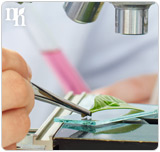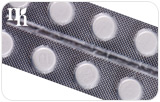If you've been reading up on pharmaceutical options to treat symptoms of menopause, you may have come across the term "bioidentical hormones". This type of hormone therapy differs vastly from HRT, as bioidentical hormone therapy uses compounded hormones rather than synthetic ones to treat menopause symptoms. But what exactly are bioidentical hormones and how do they work? Read on to learn more.
Deciphering the Name

"Bioidentical hormones" is a scientific term used to describe hormones that are structurally identical to naturally-occurring hormones in the female body. They are engineered in a laboratory setting to copy the effects of female hormones like estrogen, progesterone, and testosterone.
Because bioidentical hormones are derived from soy or yam plants, the treatment is often referred to as "natural hormone therapy". However, this identifier is greatly misleading, as bioidentical hormones are not natural hormones. Continue reading to learn about the history of bioidentical hormones.
History of Bioidentical Hormones
Bioidentical hormones were first discovered by Canadian researcher James Collip in the 1930's. Collip found a method of extracting an orally-active estrogen from the urine of pregnant women. Soon after, bioidentical hormone therapy was born in hopes of helping women treat problems with hormone imbalance. Bioidentical hormones were sold under one brand name until the 1970s, when their safety came into question.
In the 1990s, bioidentical hormones regained some of their former glory thanks to two physicians: John R. Lee and Jonathan Wright. Both wrote books that promoted the benefits of bioidentical hormone replacement therapy for women. The U.S. Food and Drug Administration (FDA) finally approved a bioidentical progesterone for use in May of 1998.
Proceed with Caution

Bioidentical hormones are developed by independent pharmacists and researchers. Currently there are limited regulations and little formal quality control or assurance for the use of bioidentical hormones as a menopause treatment. Additionally, no studies have been undertaken to determine the long-term side effects and risks of bioidentical hormones. Thus, women considering this menopause treatment should proceed with caution.
Recommendation
Women are strongly urged to seek alternative treatments to bioidentical hormones for their menopause symptoms. Popular treatments for menopause symptoms include making simple lifestyle changes, using herbal supplements or other alternative treatments, or starting hormone replacement therapy (HRT). Women are advised to consult their doctor to find the treatment that's right for them. Click on the links below to learn more information about bioidentical hormones.


